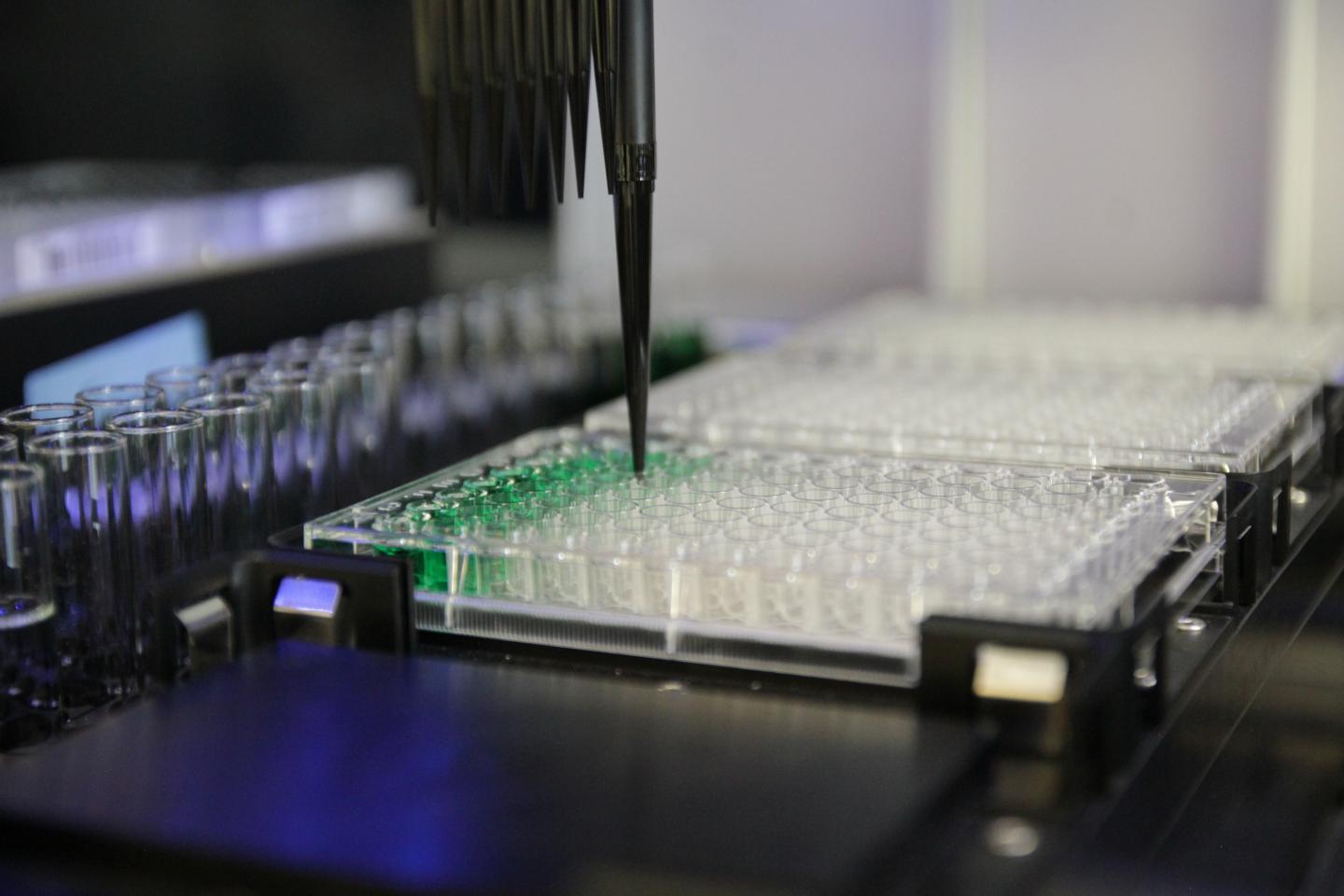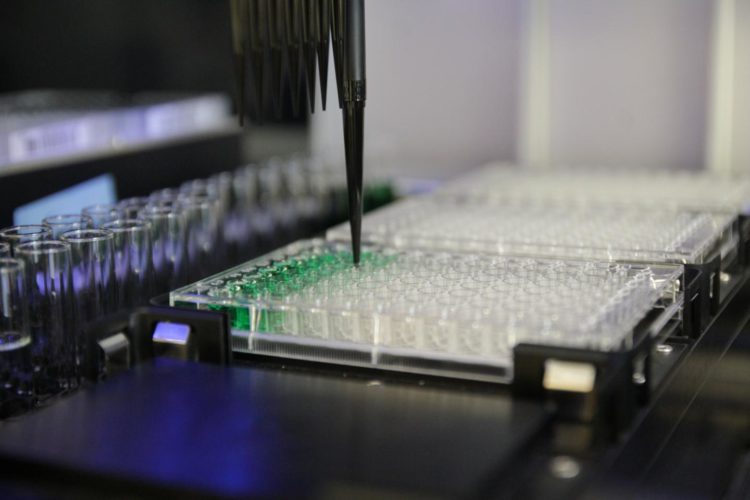Rutgers-led team pioneers automated way to make unique materials with polymers

Credit: Matthew Tamasi
A Rutgers-led team of engineers has developed an automated way to produce polymers, making it much easier to create advanced materials aimed at improving human health.
The innovation is a critical step in pushing the limits for researchers who want to explore large libraries of polymers, including plastics and fibers, for chemical and biological applications such as drugs and regenerative medicine through tissue engineering.
While a human researcher may be able to make a few polymers a day, the new automated system – featuring custom software and a liquid-handling robot – can create up to 384 different polymers at once, a huge increase over current methods.
Synthetic polymers are widely used in advanced materials with special properties, and their continued development is crucial to new technologies, according to a study in the journal Advanced Intelligent Systems. Such technologies include diagnostics, medical devices, electronics, sensors, robots and lighting.
“Typically, researchers synthesize polymers in highly controlled environments, limiting the development of large libraries of complex materials,” said senior author Adam J. Gormley, an assistant professor in the Department of Biomedical Engineering in the School of Engineering at Rutgers University-New Brunswick. “By automating polymer synthesis and using a robotic platform, it is now possible to rapidly create a multitude of unique materials.”
Robotics has automated many ways to make materials as well as discover and develop drugs. But synthesizing polymers remains challenging because most chemical reactions are extremely sensitive to oxygen and can’t be done without removing it during production. The Gormley lab’s open-air robotics platform carries out polymer synthesis reactions that tolerate oxygen.
The group developed custom software that allows a liquid handling robot to interpret polymer designs made on a computer and carry out every step of the chemical reaction. One benefit: the new automated system makes it easier for non-experts to create polymers.
###
The lead author is Matthew Tamasi, a Rutgers doctoral student. Co-authors include doctoral student Shashank Kosuri and undergraduate student Jason DiStefano. A researcher at the Australian Centre for Nanomedicine and Centre for Advanced Macromolecular Design contributed to the study, which was funded by the New Jersey Health Foundation.
Media Contact
Todd Bates
[email protected]
848-932-0550
Original Source
https:/
Related Journal Article
http://dx.





